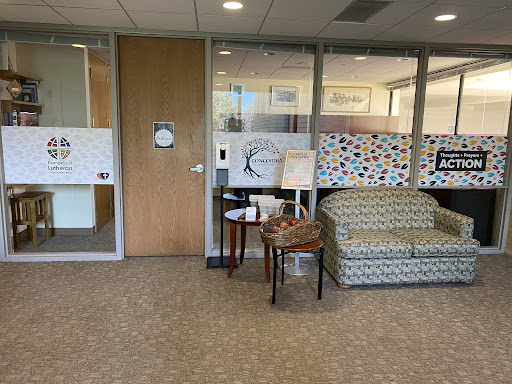Ludwig van Beethoven, one of the world’s most renowned composers, went deaf and kept composing. Grant Achatz, a chef at a restaurant with three Michelin stars, has no sense of smell or taste.
Greg Epstein, an atheist, was elected to be Harvard University’s newest chief chaplain on Aug. 26. However, Harvard’s organization of chaplains faces backlash from other religious leaders and schools, saying that instating an atheist man as a chief chaplain invalidates religion itself.
Concordia’s Campus Ministry, however, stands by their claim to religious tolerance.

“As a chaplain, your primary role is not to assert your own faith onto other people,” says Pastor Dave Adams, a member of Concordia’s Campus Ministry. “As a chaplain, your role is to listen to others.”
A chaplain is considered a member of the clergy who is affiliated with a private institution or chapel. In Concordia’s case, three chaplains are a part of the Campus Ministry.
As news of Harvard’s new atheist chief chaplain traveled to the ears of Concordia’s chaplains, it brought about a consideration of religious diversity on campus, even though Concordia is a Lutheran school.
“I would not be opposed to having an atheist on the Campus Ministry,” says Pastor Kim Adams, another member of Concordia’s Campus Ministry. “It would help us support other faith practices.”
“Or non-faith practices,” adds Dave Adams.
Ava Pfeifer, a Concordia sophomore who describes herself as “semi-religious,” also sees the value of following after Harvard and introducing more diverse members to the Campus Ministry.
Pfeifer says adding someone who follows a form of non-faith––such as atheism and agnosticism––would be a great way to foster inclusivity on campus, especially as the younger generation approaches religion with more fluidity.
“In my American Education in a Diverse World class,” says Pfeifer, “one of the books we’re reading has a section on religion, and one of the stats that I thought was surprising, but also not, was that younger generations are less likely to proclaim faith or belief in a higher power than older generations.”
This generation of college students is ushering in a new mentality when it comes to religion. A study from Springtide Research Institute found in 2020 that 60% of young adults identify as non-affiliated when it comes to religion. However, they still consider themselves at least a little bit spiritual.
That does not mean that all college students do not have faith. Concordia sophomore Nicole Fornshell identifies as a Lutheran, and actively believes in a higher power.
“I’m Lutheran, but all of these new beliefs are starting to form larger followings,” Fornshell says. “I’m happy that our country is becoming more religiously diverse.”
Fornshell says that Harvard’s instatement of an atheist as their chief chaplain shows how proficient Harvard is at assessing the needs of their students and catering to them.
“I could see Concordia doing this,” she says, “because we’ve been evolving with the times. I think it would be great for the campus to embrace other religions more in action than in words.”
Pastor Dave Adams expresses some hesitancy towards following in Harvard’s footsteps, but only because Concordia is deeply rooted in Lutheran faith.
“I don’t know if we could bring someone in to be chief chaplain like that, but I would love to add more diversity to the Campus Ministry staff,” he says.
A chief chaplain oversees all the other work of other chaplains, so placing someone of non-Lutheran faith in that position might not be received well in the community.
However, both Pastor Dave Adams and Pastor Kim Adams applaud Harvard’s efforts to cater to their student body.
Pastor Kim Adams especially likes how Harvard’s actions reinforce what campus chaplaincy is all about––the students.
“I have helped religious and non-religious students,” she says. “It’s important that people know we are here to support all students, regardless of their religious beliefs.”

